14th Annual General Meeting (AGM) of the Intergovernmental Forum on Mining, Minerals, Metals and Sustainable Development (IGF)
15-18 October 2018 | Palais des Nations, Geneva, Switzerland
2018 AGM Summary Highlights
Highlights for Thursday, 18 October 2018
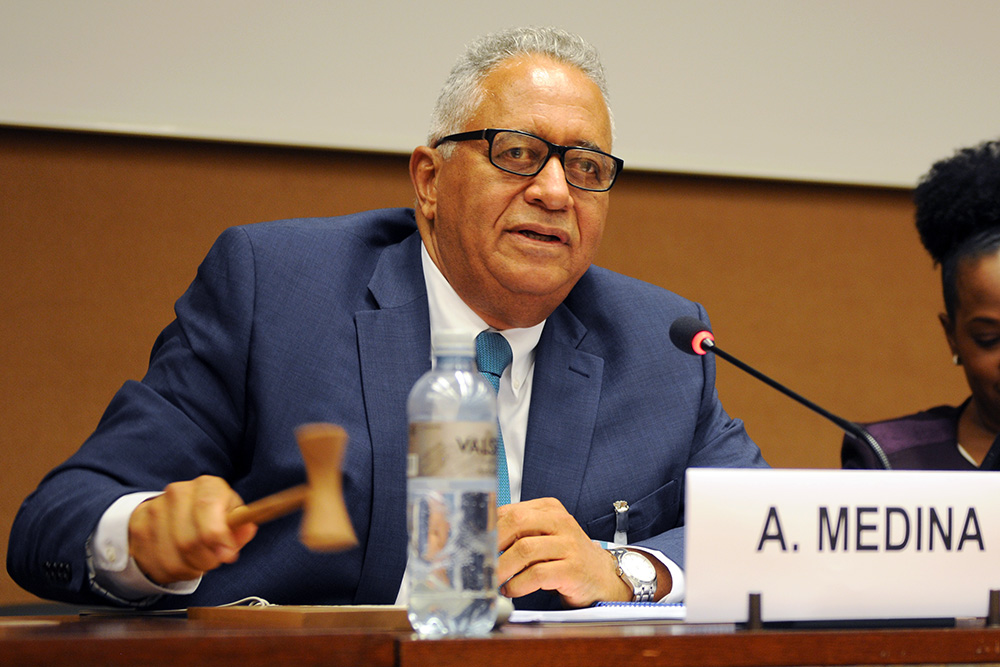
 Council members of the Intergovernmental Forum on Mining, Minerals, Metals and Sustainable Development (IGF) met in a closed session on Thursday morning, on the final day of the IGF’s 14th Annual General Meeting (AGM). During the day, delegates engaged in sessions on environmental and social impact assessments (ESIA), community engagement, new technologies, UN tools for sustainable mining policies, and tax policies.
Council members of the Intergovernmental Forum on Mining, Minerals, Metals and Sustainable Development (IGF) met in a closed session on Thursday morning, on the final day of the IGF’s 14th Annual General Meeting (AGM). During the day, delegates engaged in sessions on environmental and social impact assessments (ESIA), community engagement, new technologies, UN tools for sustainable mining policies, and tax policies.
Participants debated whether current technology investments by companies would result in greater profitability for businesses, and if so, how governments and local communities can benefit. They affirmed that ESIA can be a mechanism for healthy strategic development of an enterprise, rather than an obstacle.
At lunchtime, the UN Institute for Training and Research (UNITAR) and the UN Environment Global Mercury Partnership presented a handbook for countries developing national action plans for the artisanal and small-scale gold mining (ASGM) sector, and the Inter-American Development Bank discussed fostering dialogue among stakeholders in extractive sector investments in the Latin American and Caribbean region.
At the close of the AGM, Alexander Medina, IGF Chair, expressed appreciation for the excellent presentations and enriching discussions that had provided members with comprehensive material to take back to their respective governments.
Pamela Coke-Hamilton, UN Conference on Trade and Development (UNCTAD), congratulated the IGF for tackling complex and sensitive topics. She urged participants to develop advanced solutions to the challenges posed by automation and the impacts of artisanal and small-scale mining (ASM).
Nathalie Bernasconi, International Institute for Sustainable Development (IISD), thanked all participants and expressed gratitude to UNCTAD for hosting the meeting, and Medina gaveled the AGM to a close at 5:16 pm.
IISD Reporting Services, through its ENB+ Meeting Coverage, provided daily digital coverage and daily reports from the 2018 AGM. In addition, IISD Reporting Services, has published a summary report from the meeting.
Photos by IISD/ENB | Diego Noguera
For photo reprint permissions, please follow instructions at our Attribution Regulations for Meeting Photo Usage Page
+ Visit the web coverage for Thursday, 18 October 2018
Environmental and Social Impact Assessments
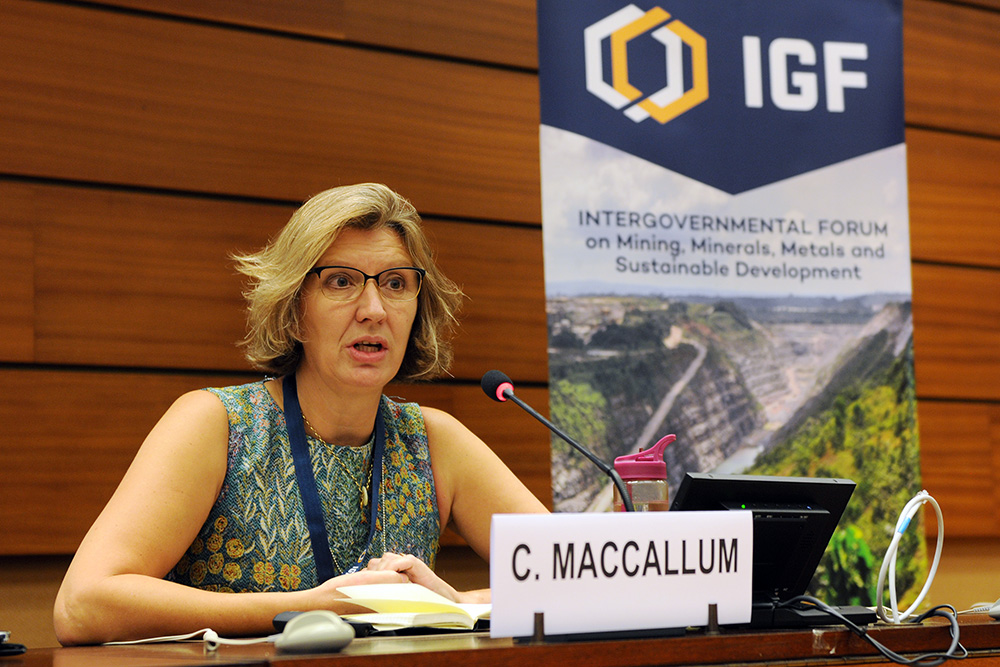
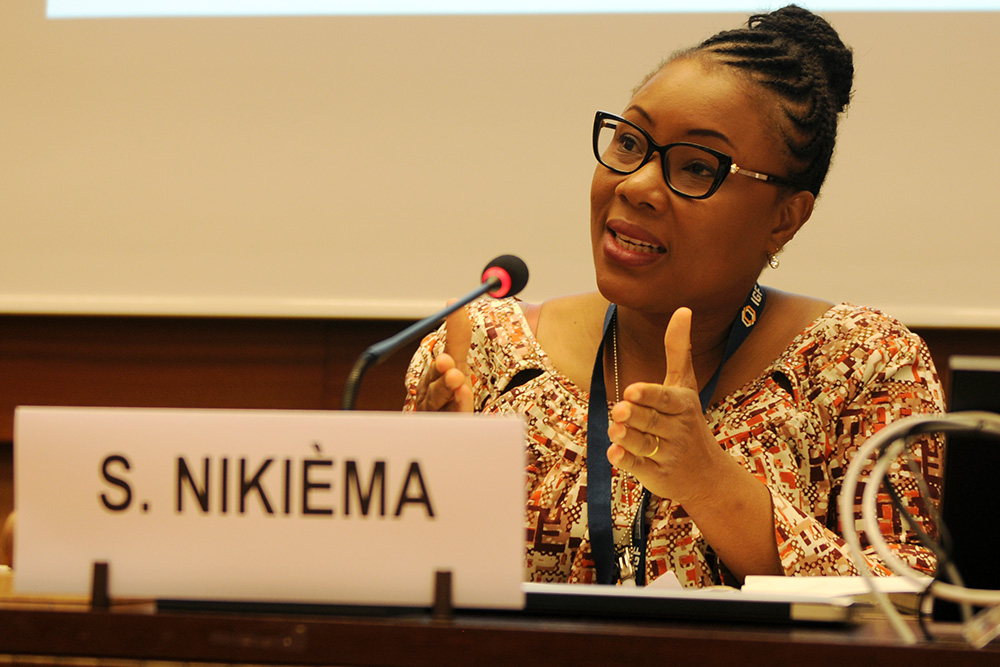
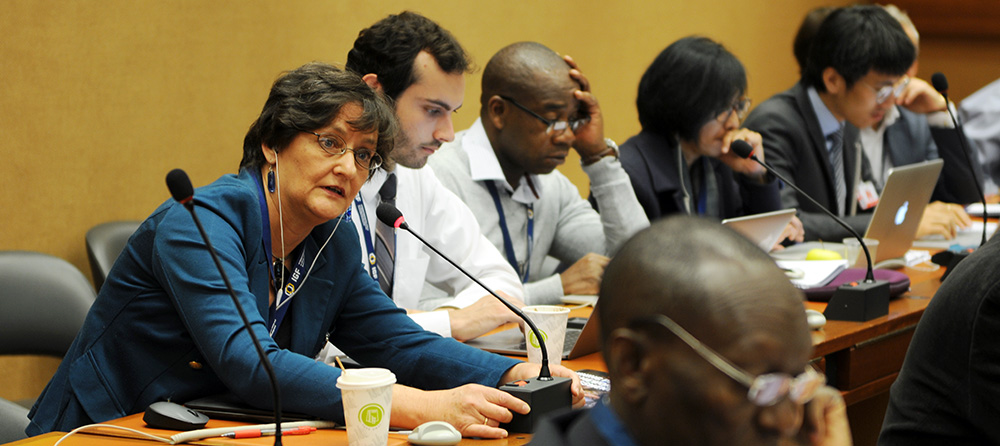
Engaging Communities in the Mine Life Cycle
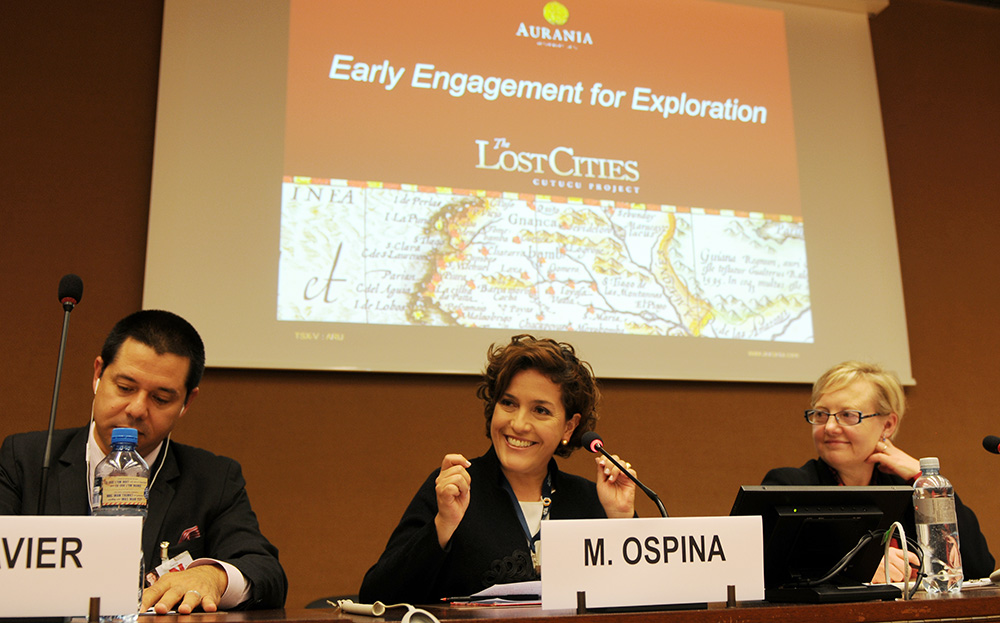
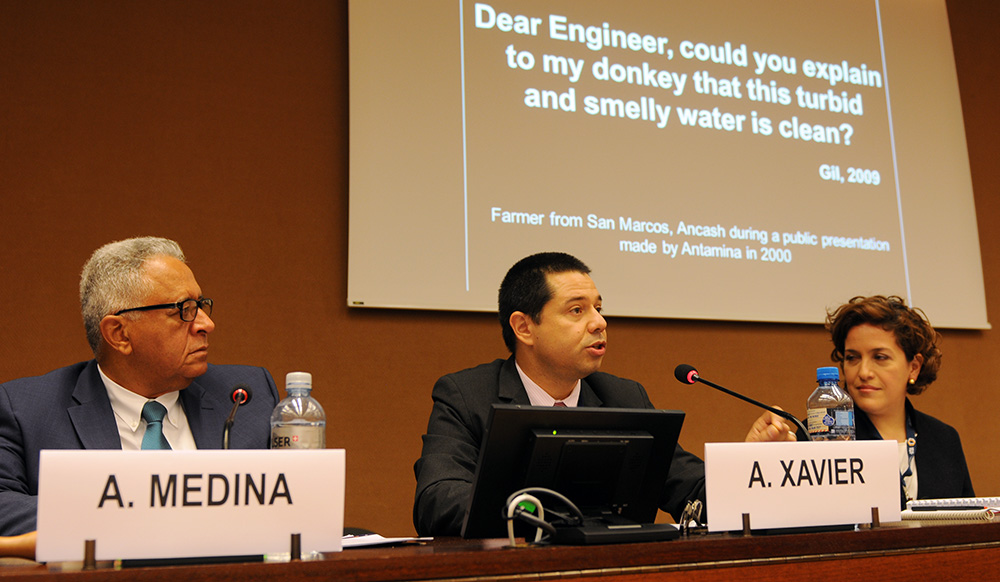
New Technology: New Deal: What Lies Ahead?
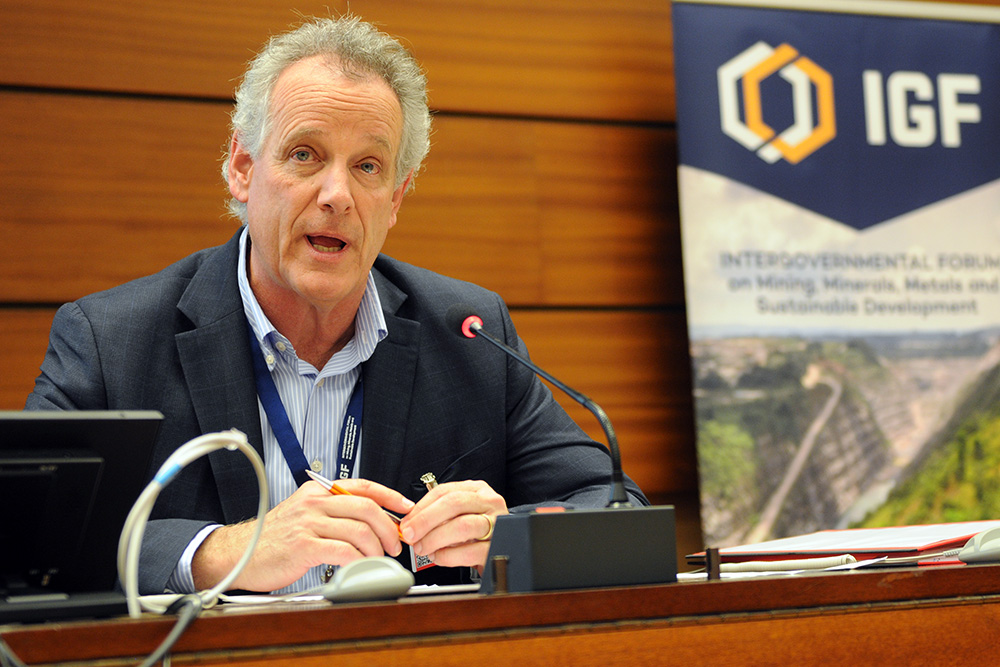
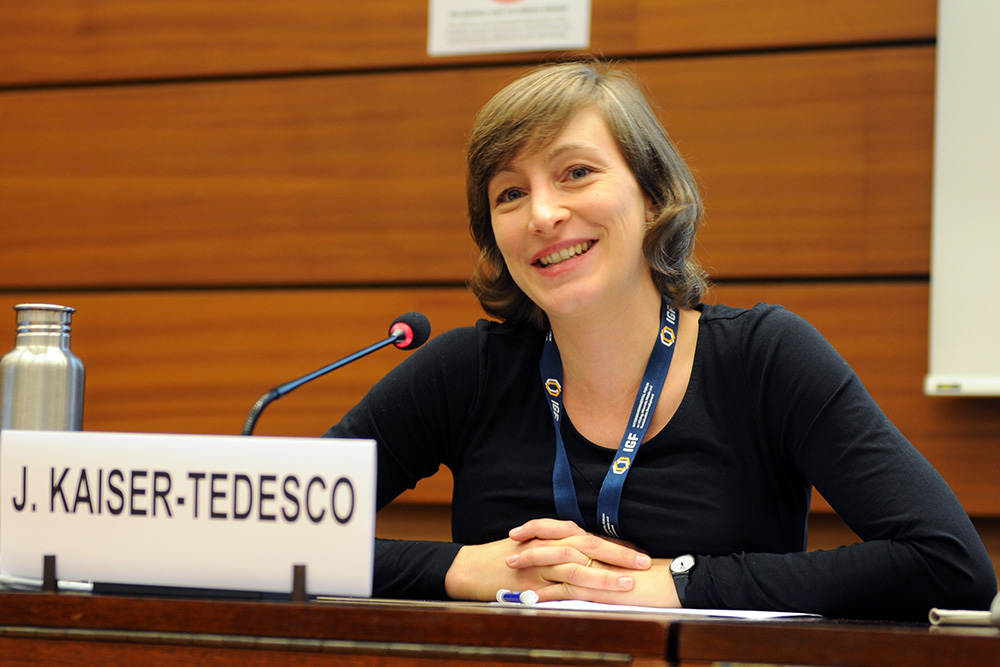
New Technology, New Deal: Implications for Future Mining Tax Regimes
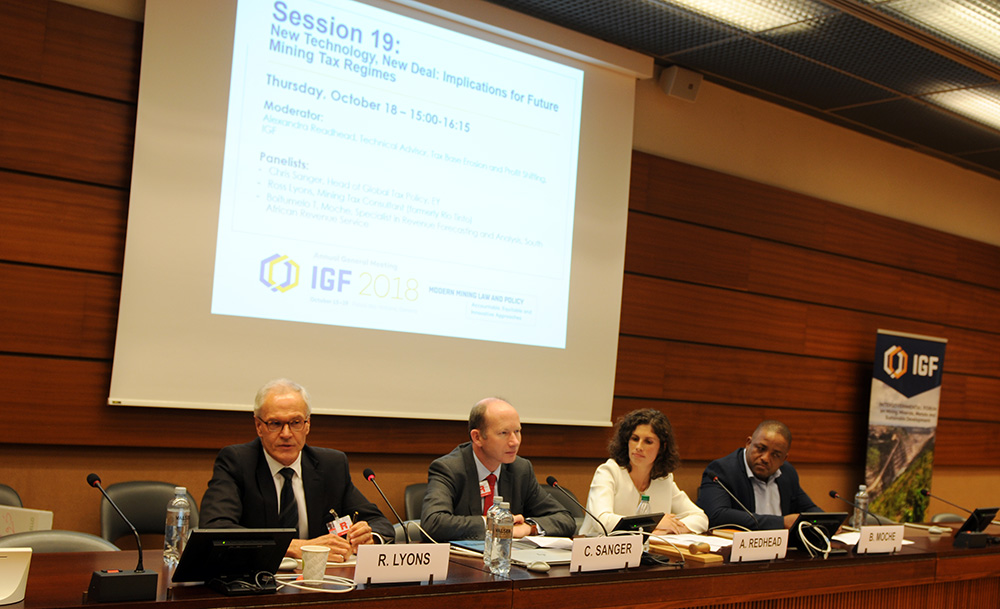
New UN Tools Supporting Sustainable Mining Policies
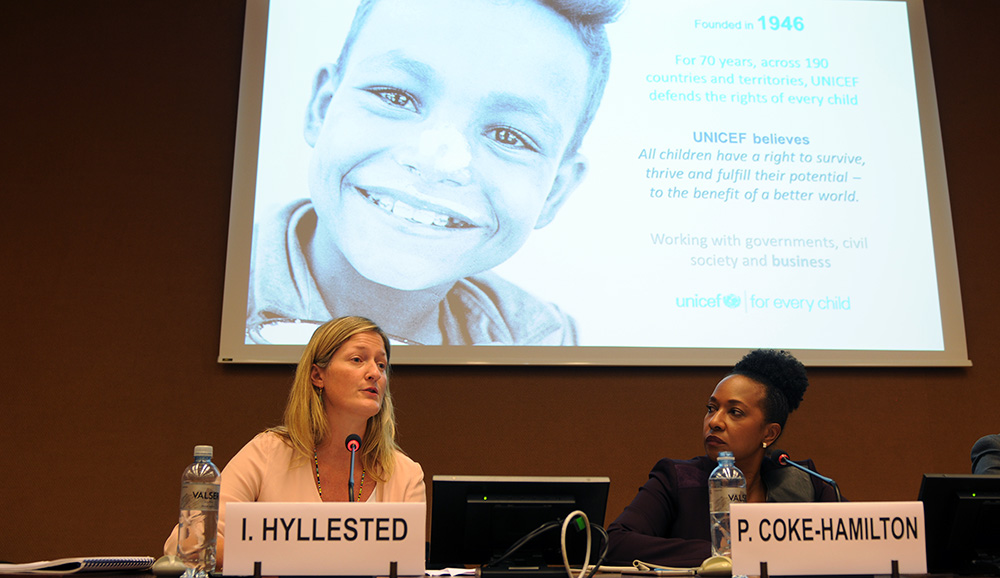
Closing
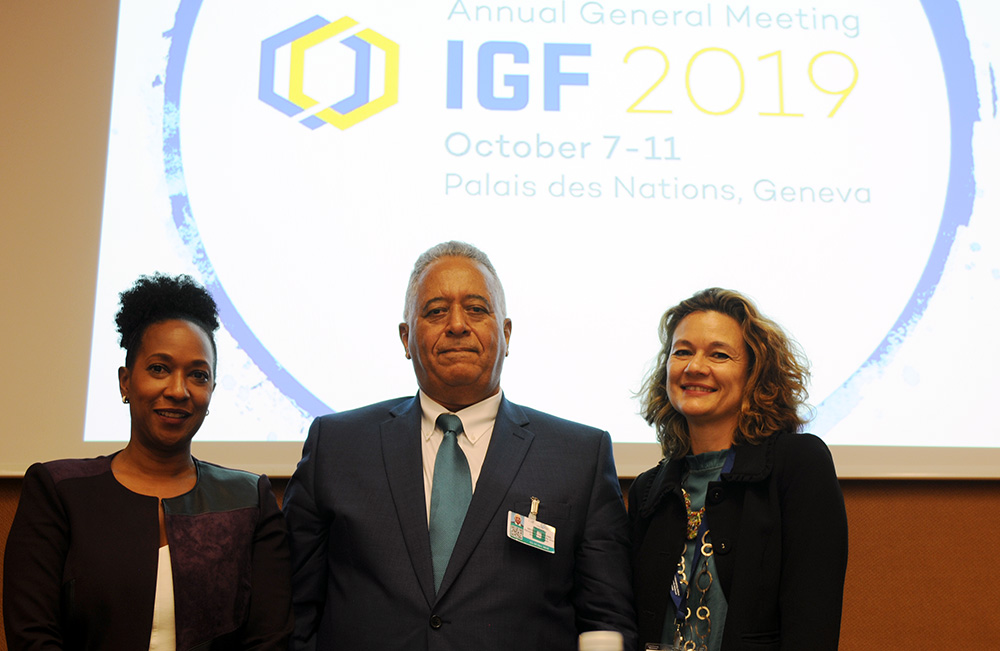
Highlights for Wednesday, 17 October 2018
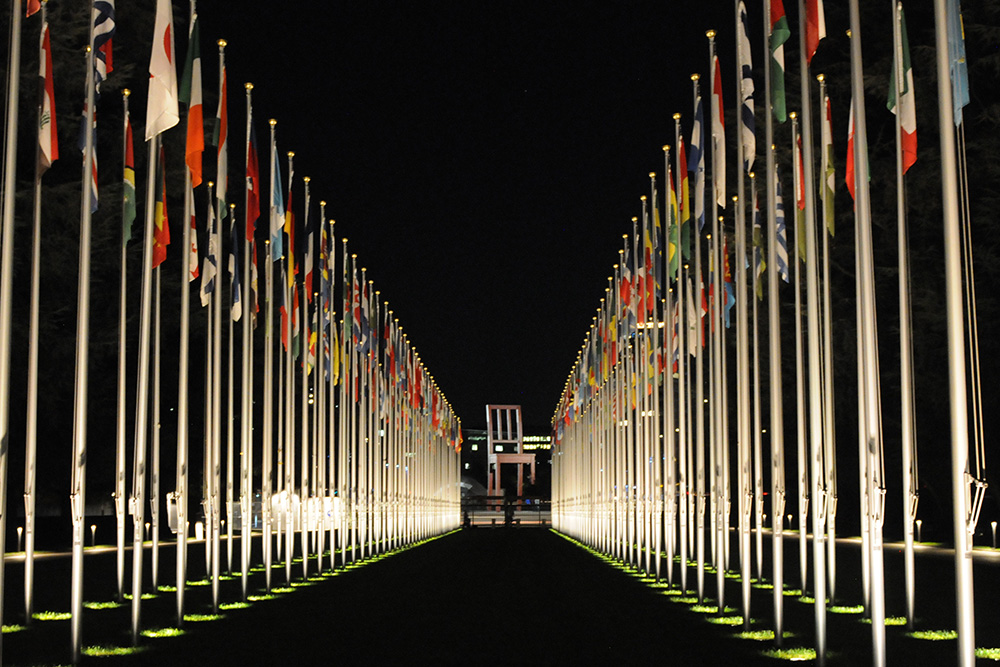
 On Wednesday, delegates to the 14th AGM of the Intergovernmental Forum on Mining, Minerals, Metals and Sustainable Development (IGF) continued their deliberations in a plenary session on ‘climate-smart mining’, and in six parallel sessions over the rest of the day on ‘forest-smart mining’, voluntary instruments, mine closure, innovation, responsible supply chains, and local content strategies.
On Wednesday, delegates to the 14th AGM of the Intergovernmental Forum on Mining, Minerals, Metals and Sustainable Development (IGF) continued their deliberations in a plenary session on ‘climate-smart mining’, and in six parallel sessions over the rest of the day on ‘forest-smart mining’, voluntary instruments, mine closure, innovation, responsible supply chains, and local content strategies.
Delegates raised concerns about diverse issues, including on land and catchment restoration at abandoned and orphan mines, opportunities to develop the quality of local manufacturing and services for mining and non-mining sectors, and the influence of technology change on employment of mine workers. They took note of the great increase in demand for certain metals and minerals used in electric vehicles, and considered the role of government in developing laws and policies to mitigate the carbon and material footprint of the mining industry. They exchanged views on the best ways to create an enabling environment for investment, and the possibilities for achieving a circular economy in the mining sector. They also discussed recent initiatives by mining companies to contribute to reforestation and biodiversity protection.
At lunchtime, delegates took part in an interactive session about using digital resources for the governance of the extractives sector, and heard a presentation on ‘How can Africa get the most value from its diamonds?’ by Vanessa Ushie, African Development Bank.
The AGM’s second day concluded with informal discussions in the hallways, as IGF participants continued to reflect on the experiences and initiatives presented for responsible and sustainable mining.
+ Visit the web coverage for Wednesday, 17 October 2018
Climate Smart Mining
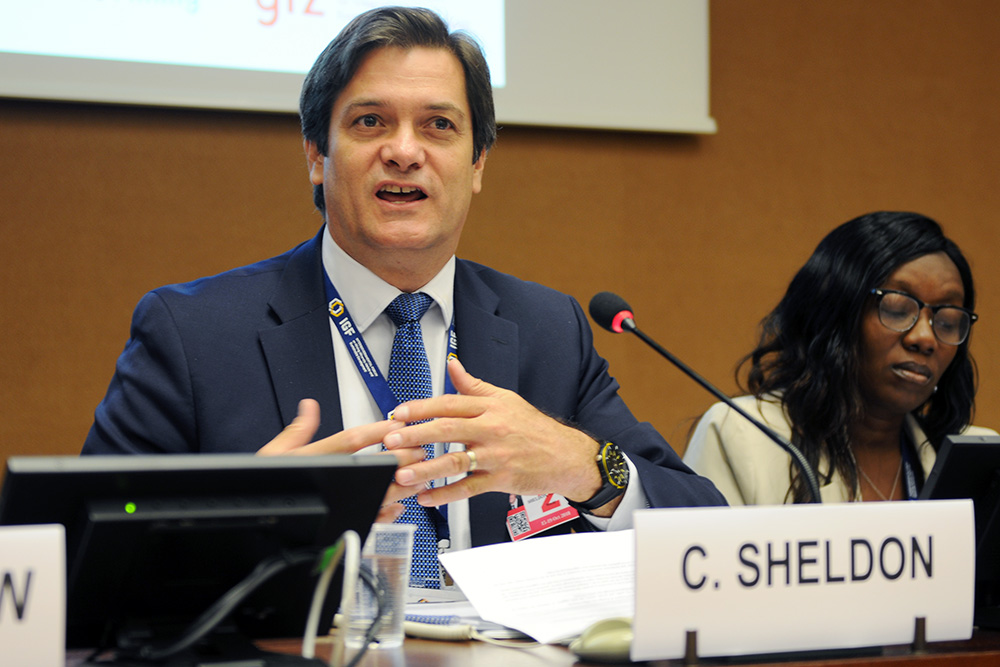
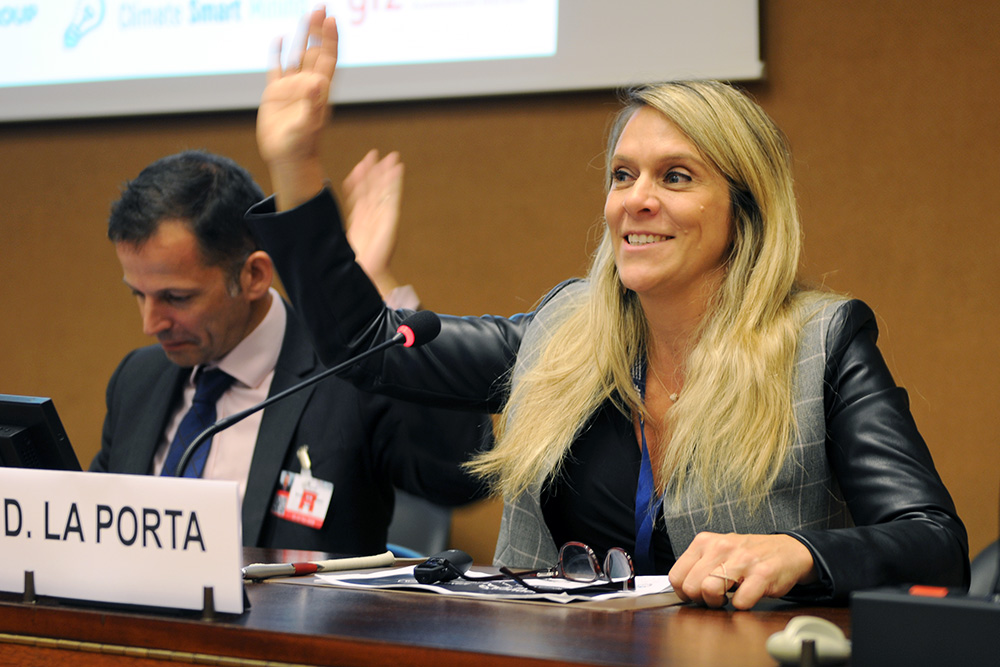
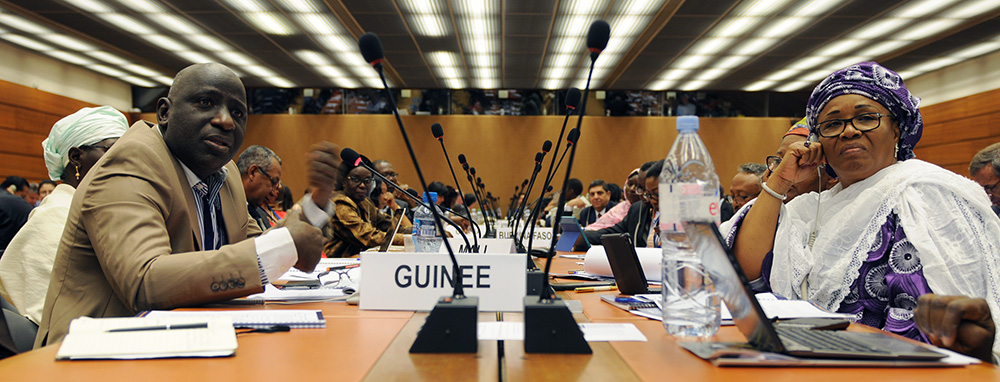
Forest Smart Mining

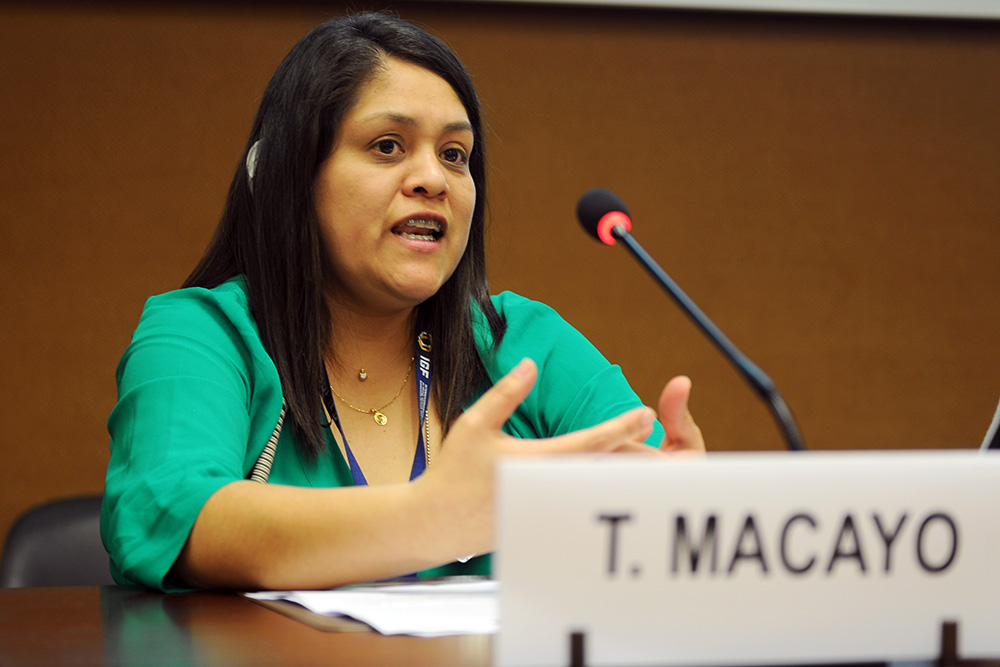
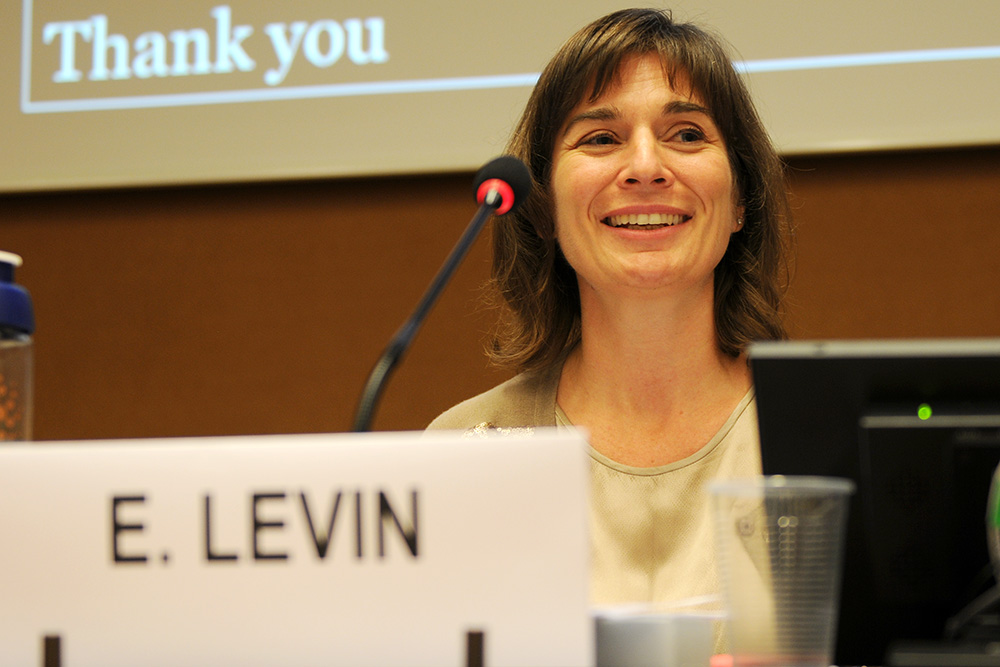
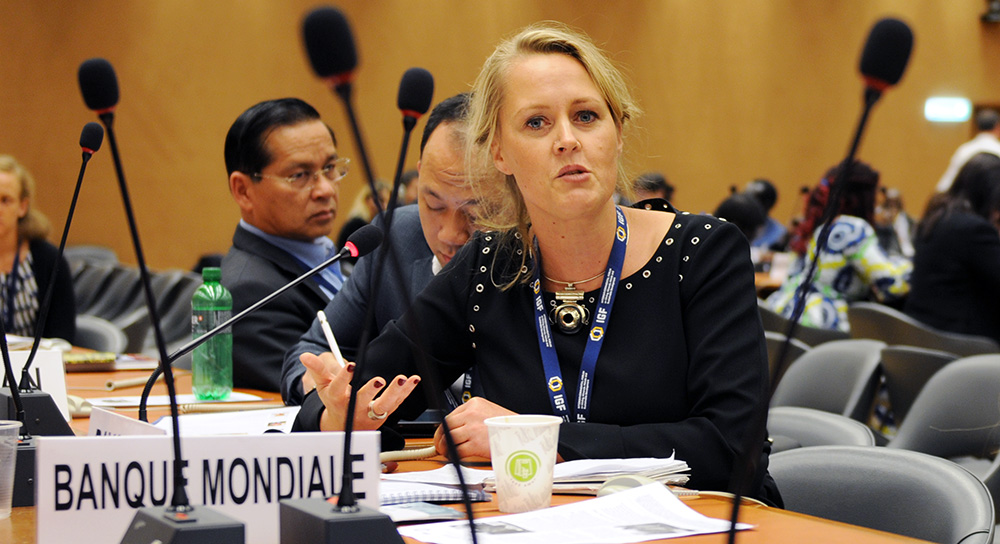
The Relevance of Internationally Agreed Voluntary Instruments for Contract Negotiations
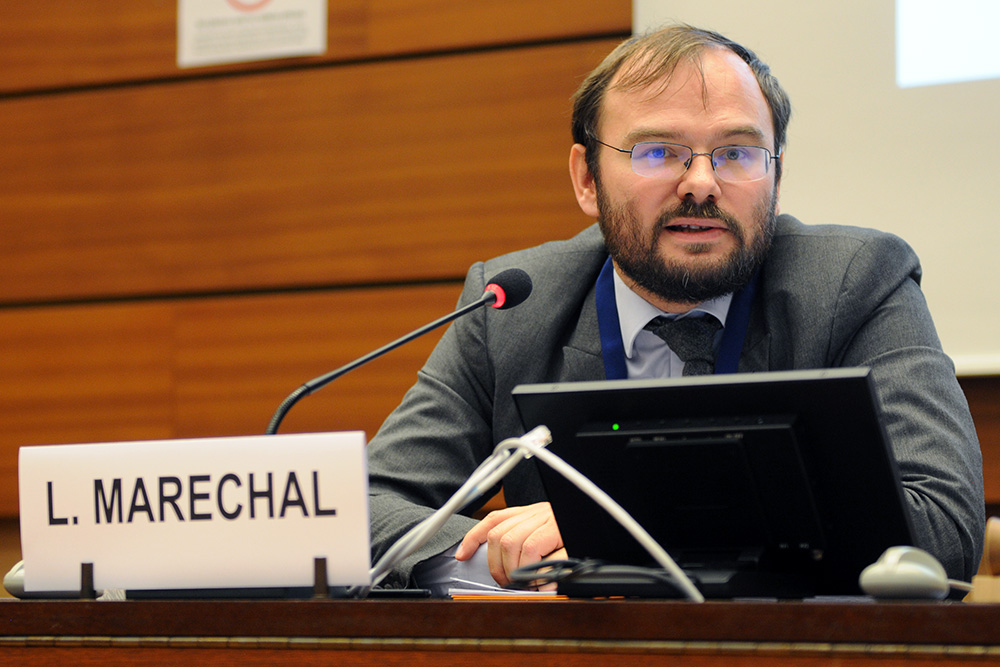
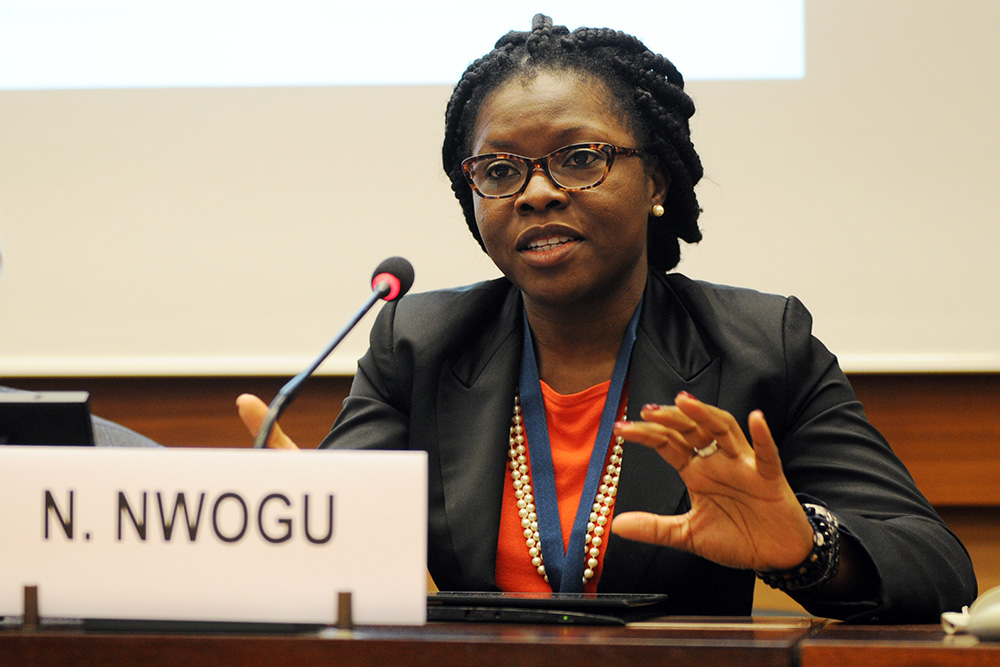
Mine Closure Best Practices: Tools for Companies and Governments

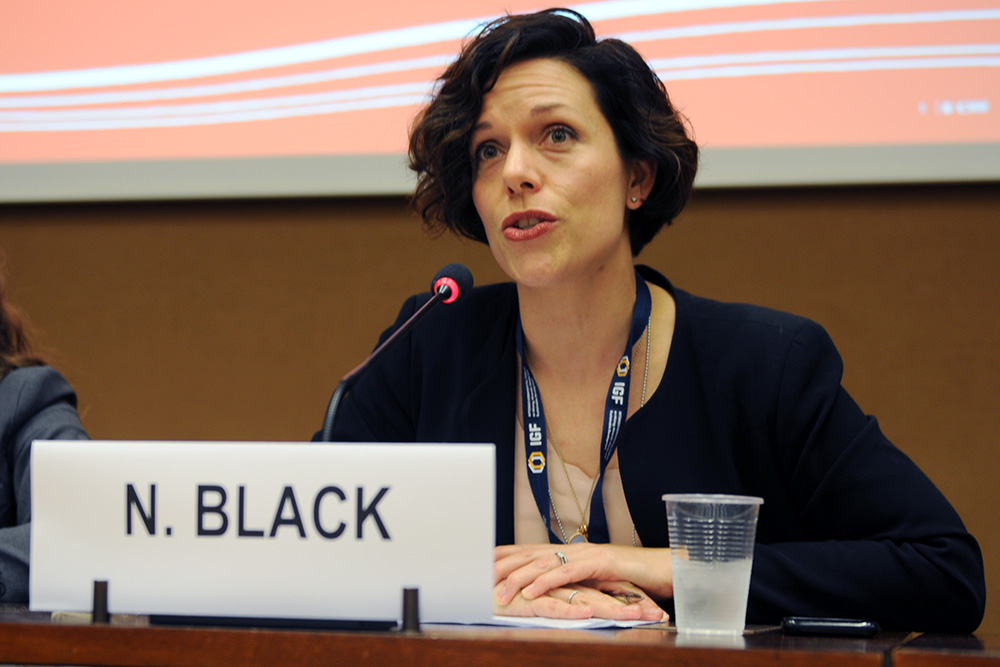
Leveraging Innovation for a Sustainable Mining Sector
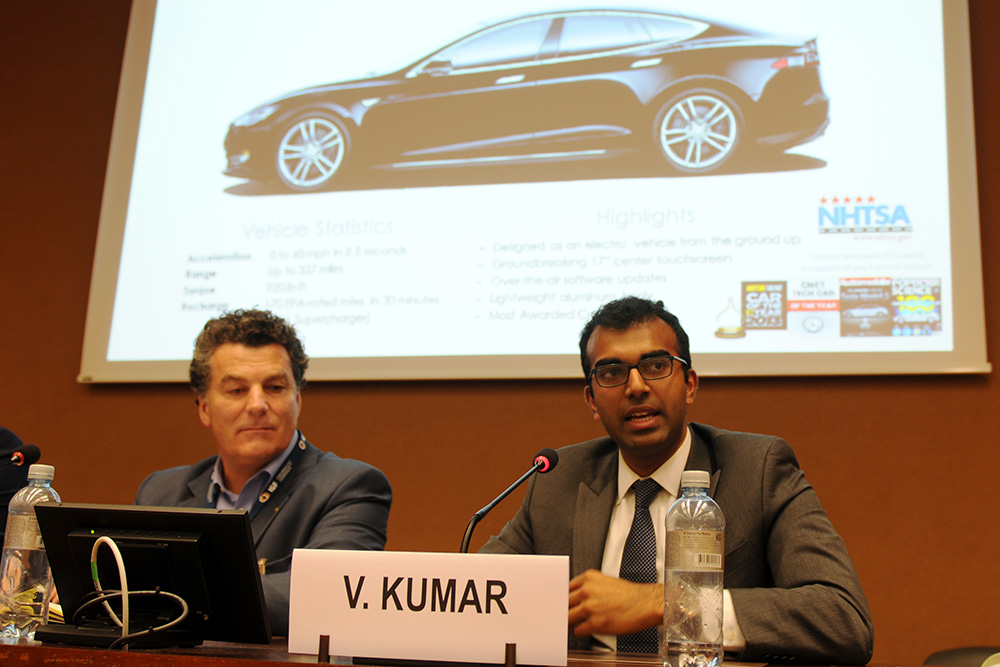
Highlights for Tuesday, 16 October 2018
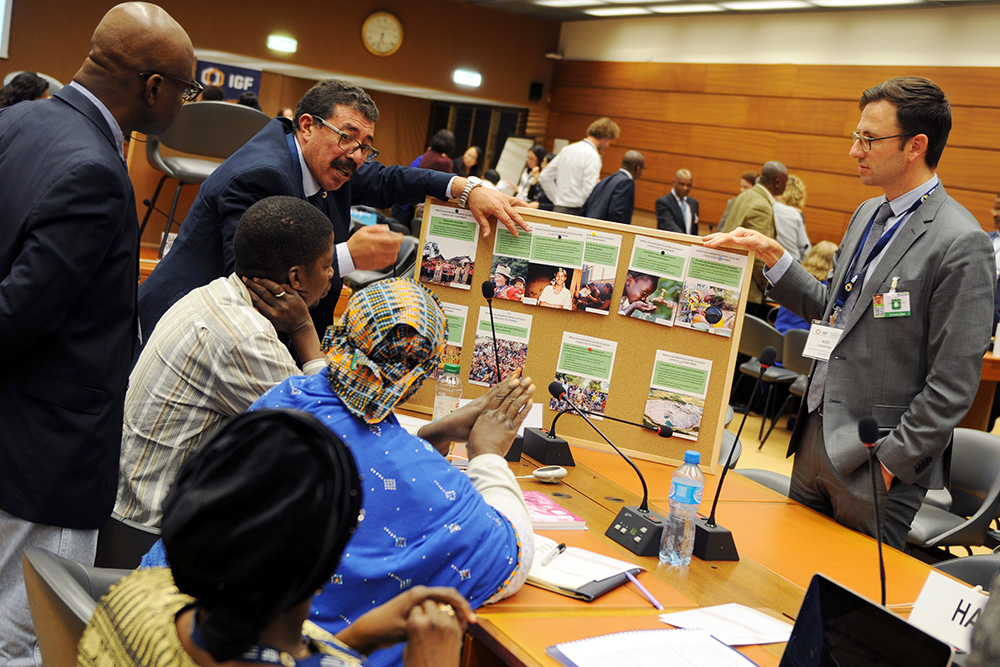
 The 14th AGM of the Intergovernmental Forum on Mining opened today at the UN Palais des Nations in Geneva, Switzerland, with participants from more than 80 countries.
The 14th AGM of the Intergovernmental Forum on Mining opened today at the UN Palais des Nations in Geneva, Switzerland, with participants from more than 80 countries.
Isabelle Durant, Deputy Secretary-General, UN Conference on Trade and Development (UNCTAD), drew attention to the growing demand for lithium in smartphone batteries. She urged delegates to consider the social and environmental impacts of lithium production, and the governance implications for its regulation.
Scott Vaughan, President, International Institute for Sustainable Development (IISD), noted that over 70% of the governments around the globe have adopted or are in the process of adopting mining policies, and highlighted that IGF is the only international platform to support government efforts in this area.
The IGF Secretariat reported that 14 countries have joined IGF over the past two years, and five new members have undertaken Mining Policy Framework (MPF) assessments in their countries, bringing the current total of completed MPF assessments to 11.
Delegates met in plenary in the morning, and in four separate sessions in the afternoon on mining law, gender issues, geological information, and mine inspection systems. Speakers presented country experiences, and considered options for further improvement of mining policy and practice.
Presentations took place over lunchtime. Ruth Thomas, Global Agribusiness Alliance, put forward a case for collaboration between the agriculture and mining sectors, and the IGF Secretariat and IISD presented a report on standards and the extractive economy.
At the end of the day, delegates attended a reception hosted by the UN Development Programme (UNDP) and the Swedish Environmental Protection Agency (Swedish EPA).
+ Visit the web coverage for Tuesday, 16 October 2018
Opening
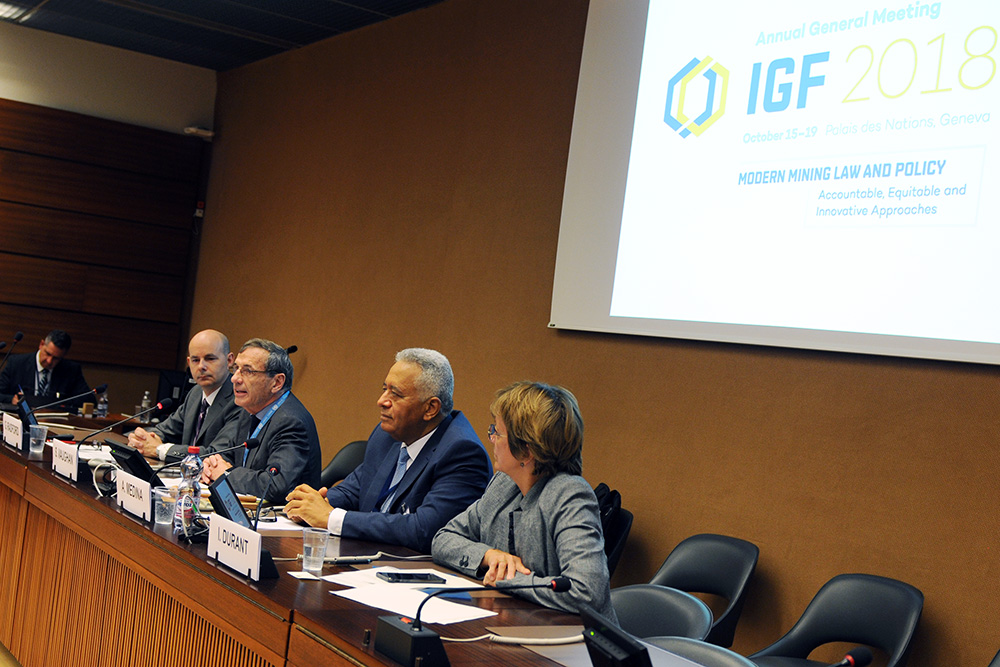
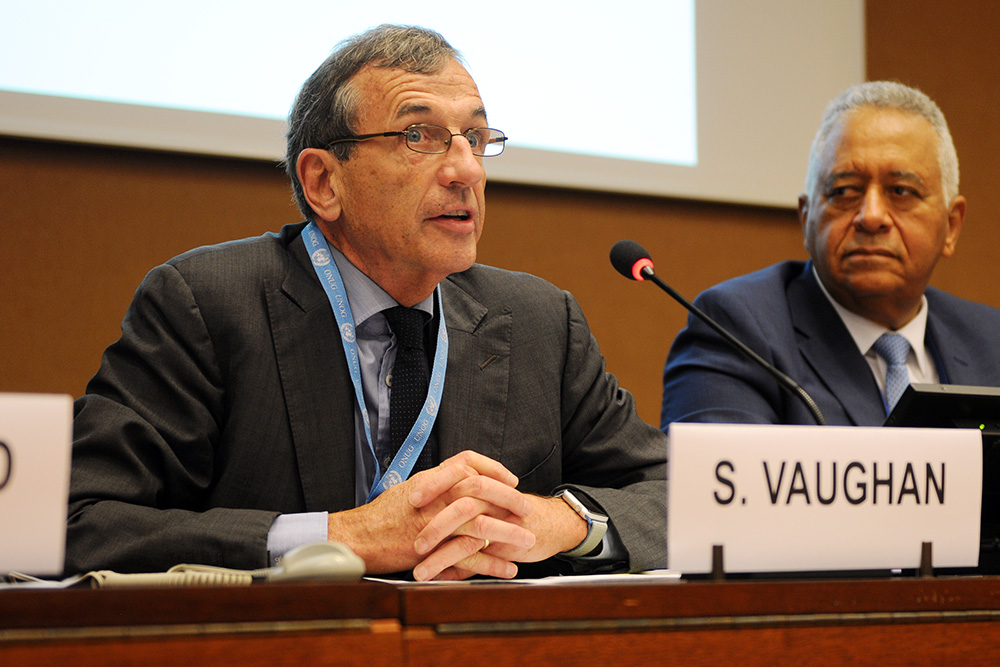
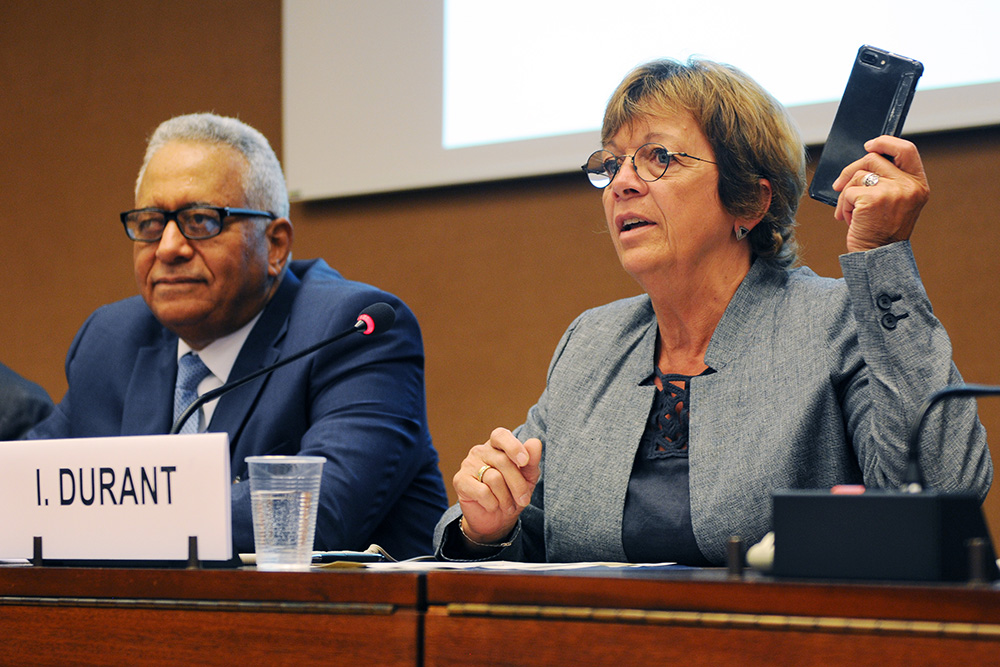
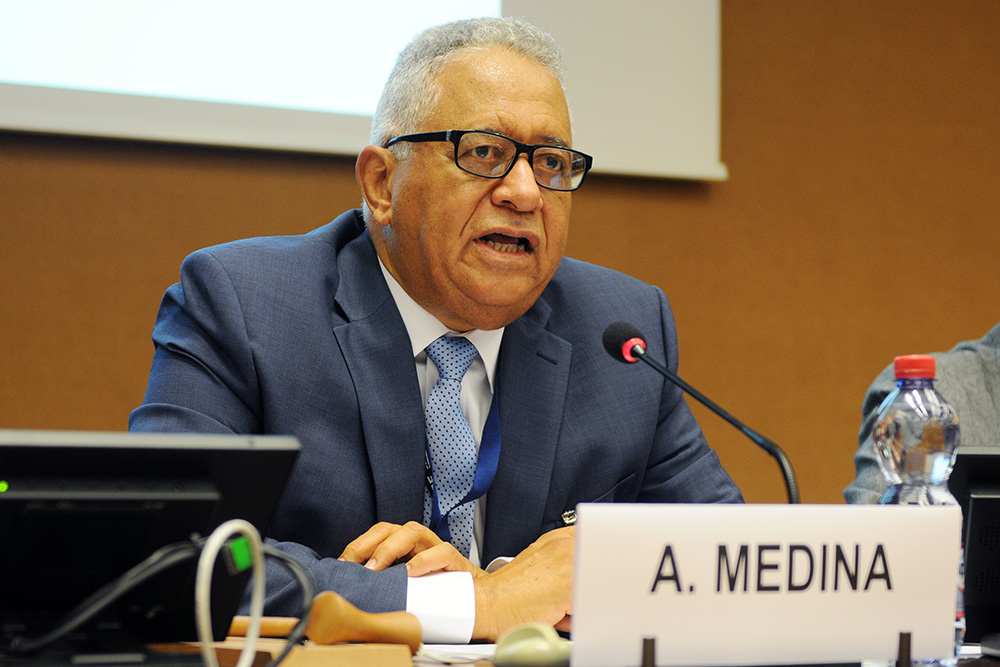
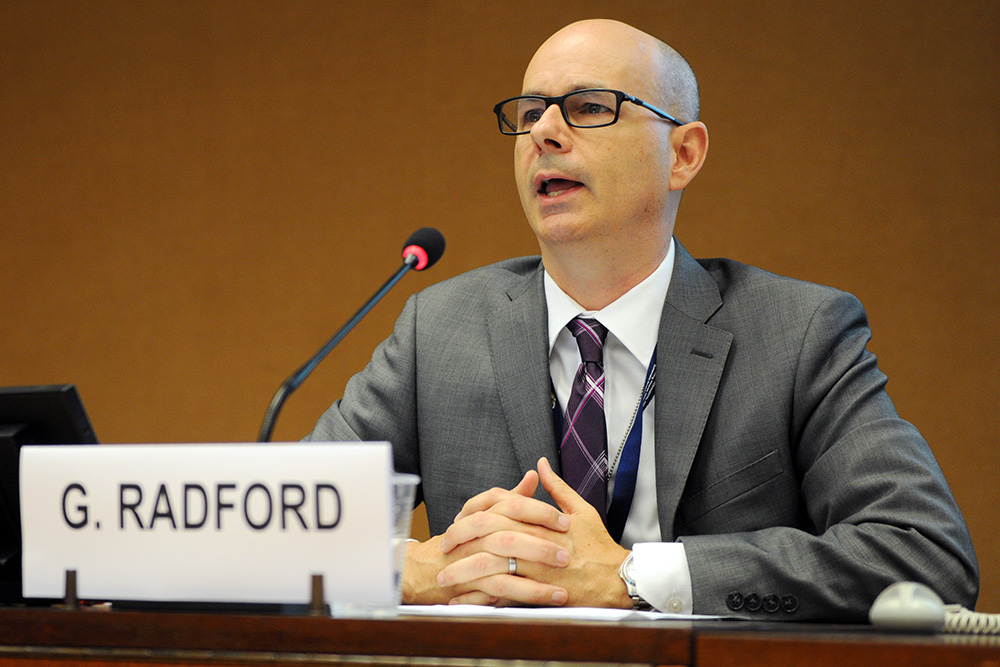
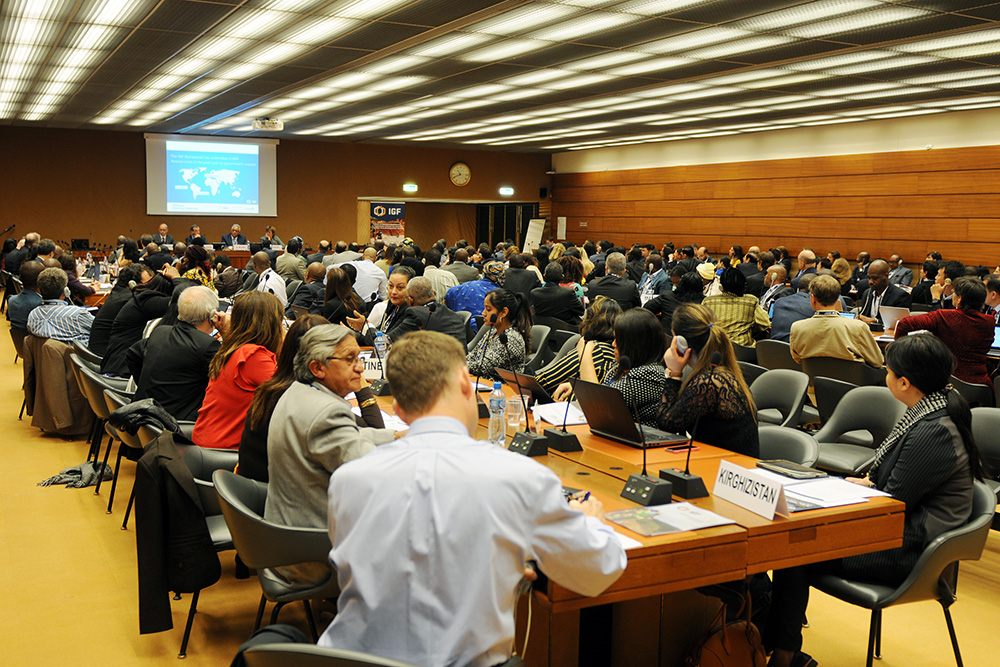
Modern Mining Law and Policy: Global Trends

Revision of Mining Codes and Laws: Case Studies

Generating and Accessing Geological Information: Innovative and Transparent Approaches
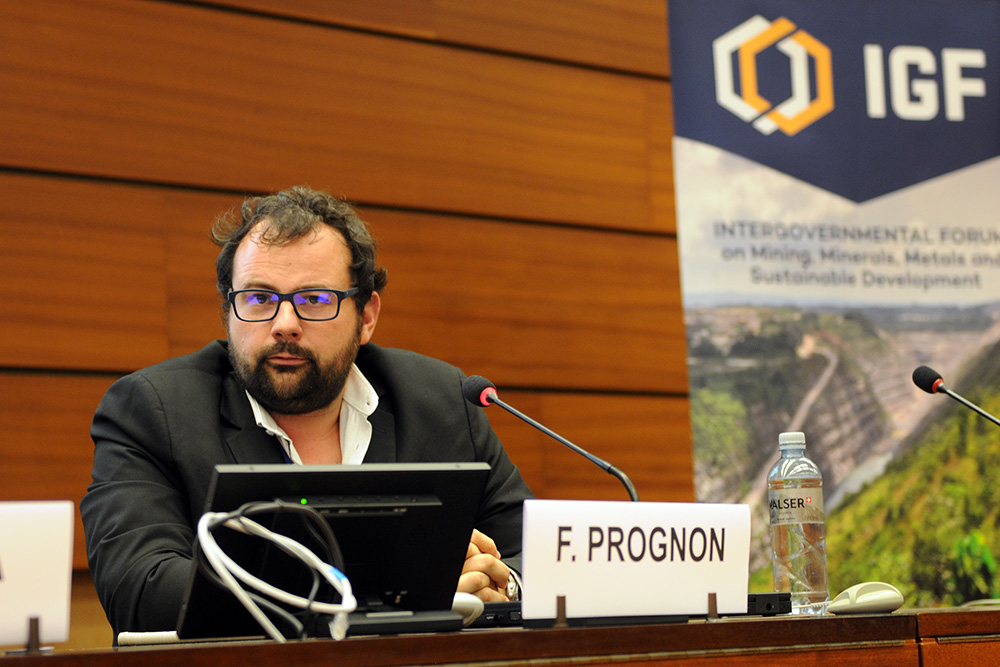
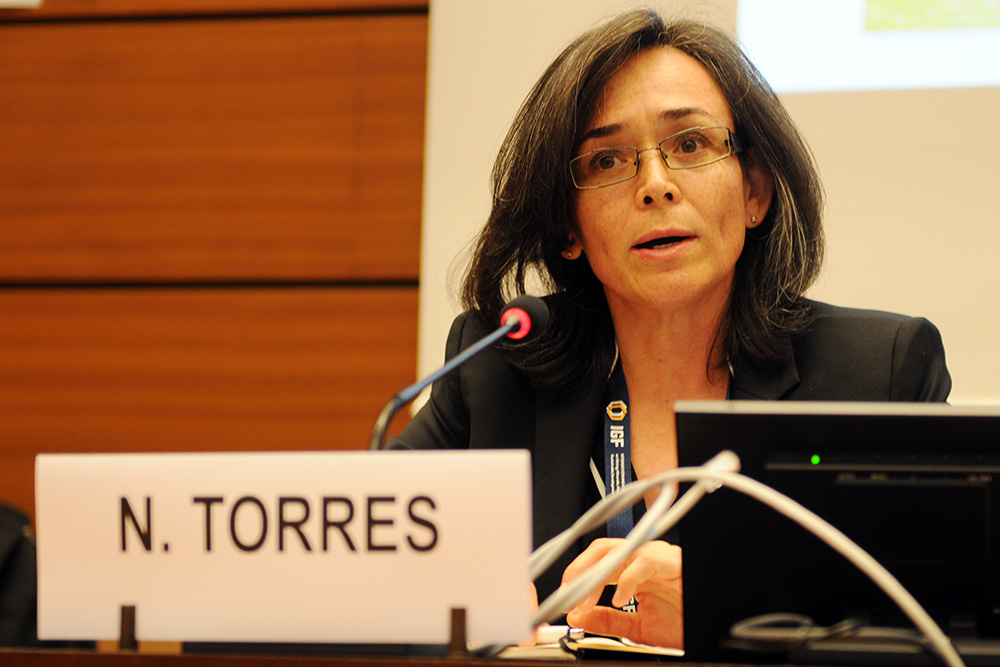
Imagining the Future of Mining: Mapping and Considering Gender Impacts, Gaps and Policy Responses to Support Progress on the SDGs
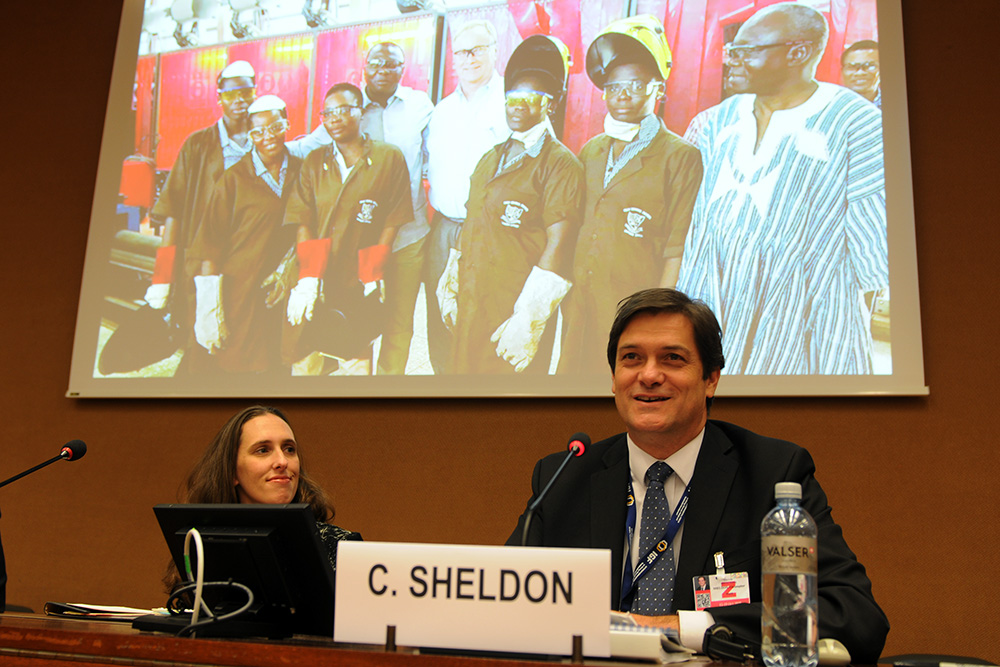
Supervising Mining Practice: Reporting on Developing Mine Inspection Systems
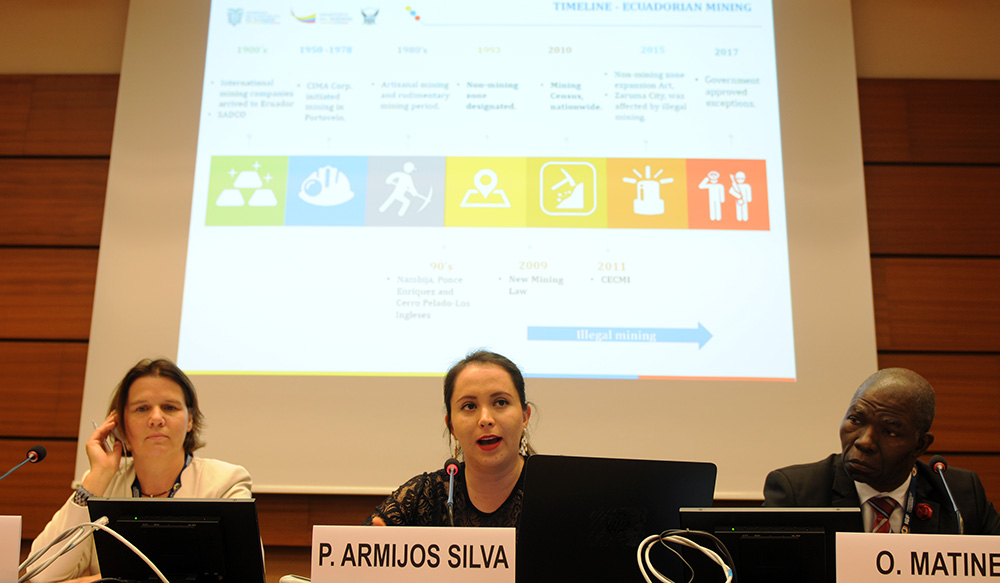
Agriculture and Mining: Exploring the Case for Closer Collaboration
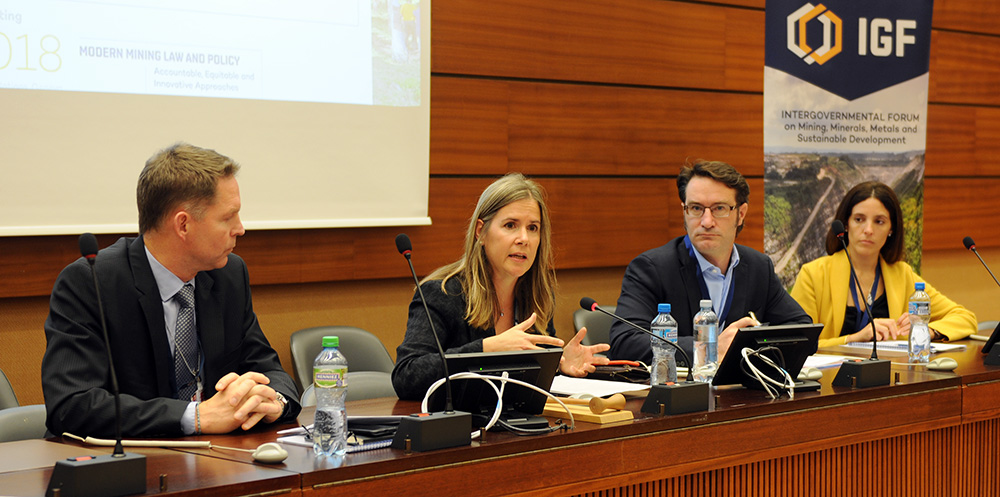
Highlights for Monday, 15 October 2018
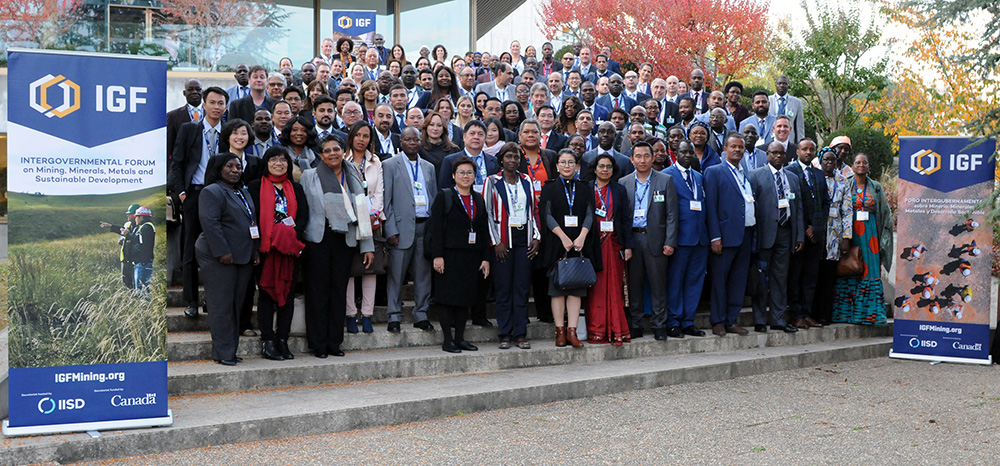
 Delegates to the 14th Annual General Meeting of the Intergovernmental Forum on Mining, Minerals, Metals and Sustainable Development (IGF) convened in Geneva, Switzerland, for a one-day pre-meeting workshop and training event. IGF Chair Alexander Medina Herasme, Director General of Mining, Dominican Republic, opened the workshop, and Greg Radford, Director, IGF Secretariat provided an update on the Secretariat’s work, noting progress made on engagement and outreach, the Mining Policy Framework (MPF) assessment methodology, and capacity building and technical support. Matthew Bliss, Deputy Director, IGF Secretariat, highlighted the success of the Secretariat’s work within the regions and with regional organizations.
Delegates to the 14th Annual General Meeting of the Intergovernmental Forum on Mining, Minerals, Metals and Sustainable Development (IGF) convened in Geneva, Switzerland, for a one-day pre-meeting workshop and training event. IGF Chair Alexander Medina Herasme, Director General of Mining, Dominican Republic, opened the workshop, and Greg Radford, Director, IGF Secretariat provided an update on the Secretariat’s work, noting progress made on engagement and outreach, the Mining Policy Framework (MPF) assessment methodology, and capacity building and technical support. Matthew Bliss, Deputy Director, IGF Secretariat, highlighted the success of the Secretariat’s work within the regions and with regional organizations.
Staff of the IGF Secretariat and the International Institute for Sustainable Development (IISD) briefed delegates on improvements to the MPF assessment methodology, and the recently-completed policy guidance on local content. They invited feedback on the draft guidance document on Environmental and Social Impact Assessment (ESIA).
Workshop participants from several developing countries expressed interest in how the MPF assessment methodology could help them to better explore their mining resources, attract stable investment, and add value for local communities. On ESIA, they welcomed assessments that integrate economic, social and environmental concerns. Other issues raised included the need for periodic reporting over the course of long-term mining projects, establishing multi-stakeholder monitoring mechanisms, and possible compensation of local communities affected by mining.
At the end of the day, delegates took part in a facilitated discussion of regional priorities, and posed for a group photo.
+ Visit the web coverage for Monday, 15 October 2018
Plenary
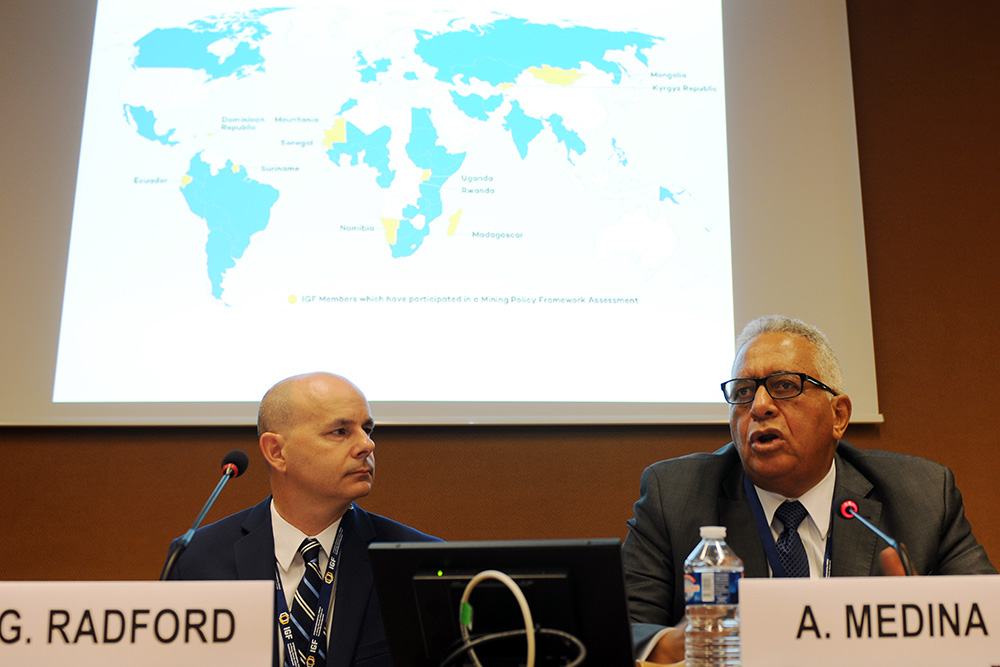
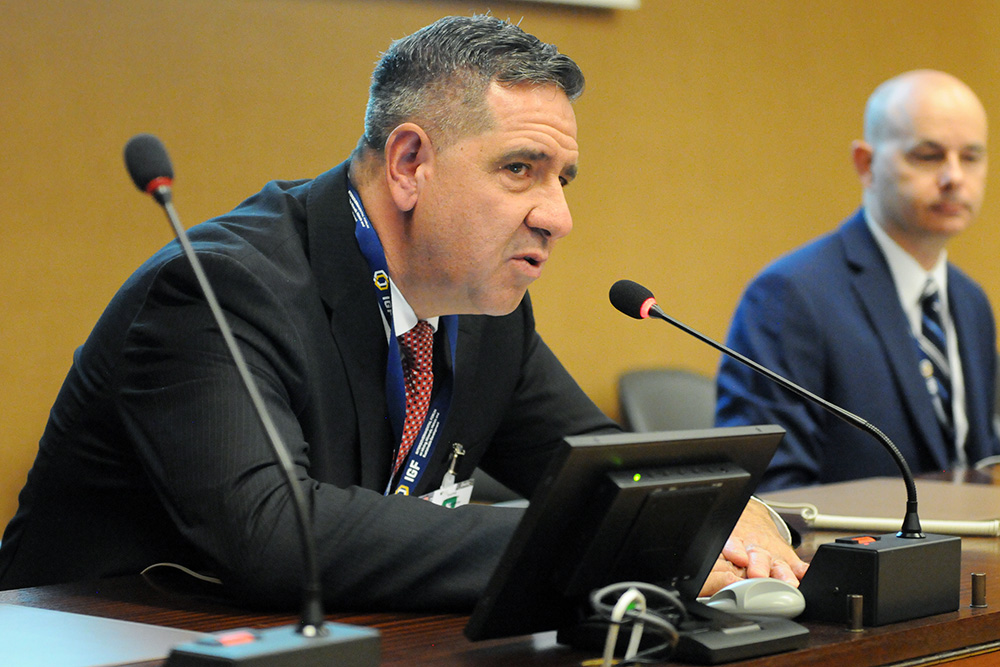
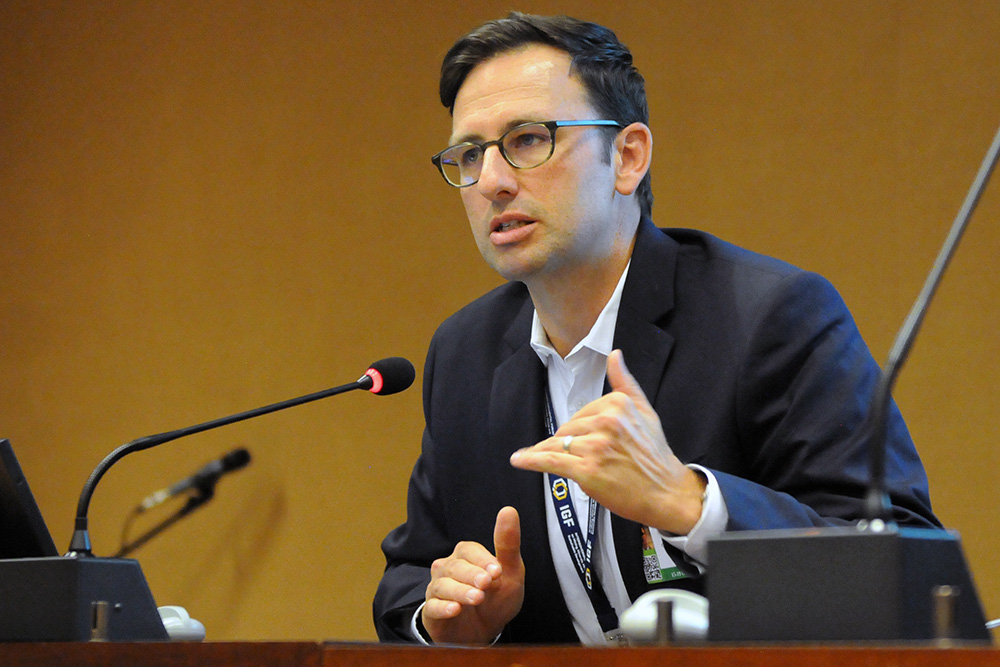
Local Content Policy Guidance Trading
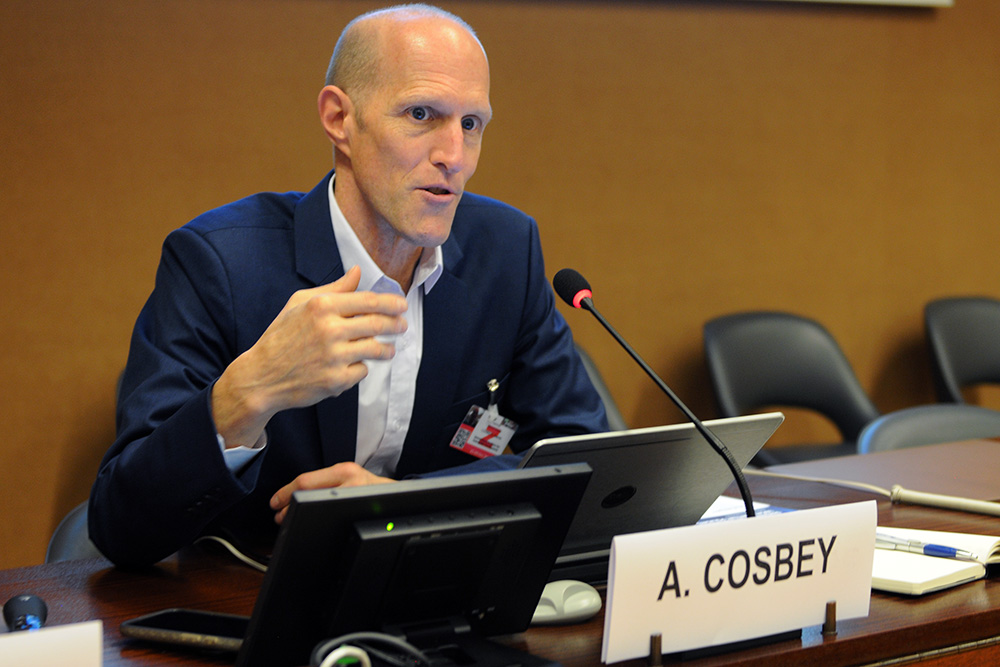
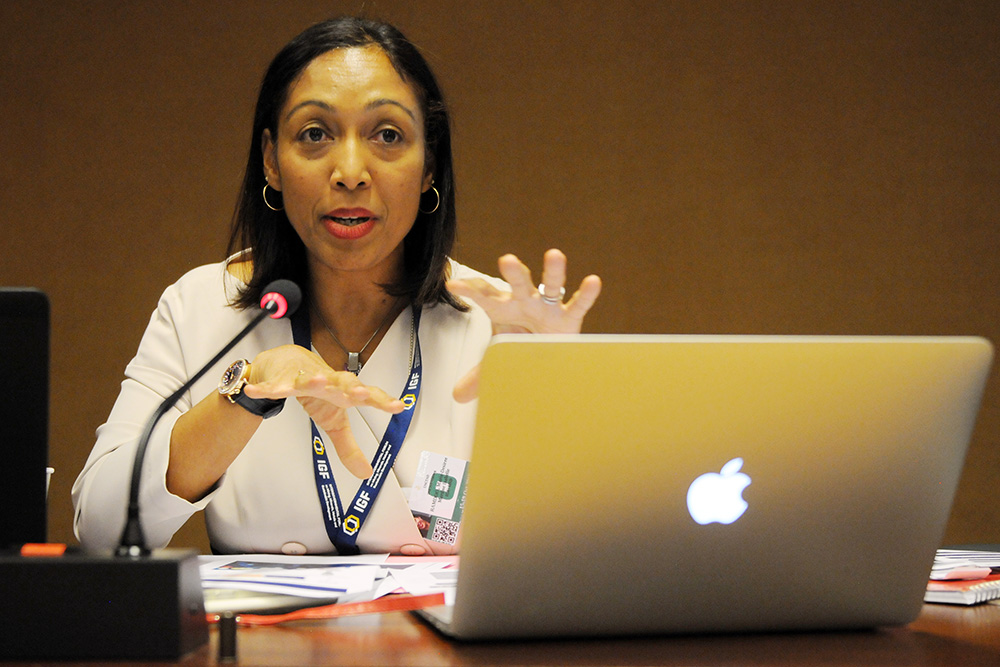
Consultation on ESIA Guidance Document

Facilitated Discussion on Regional Priorities
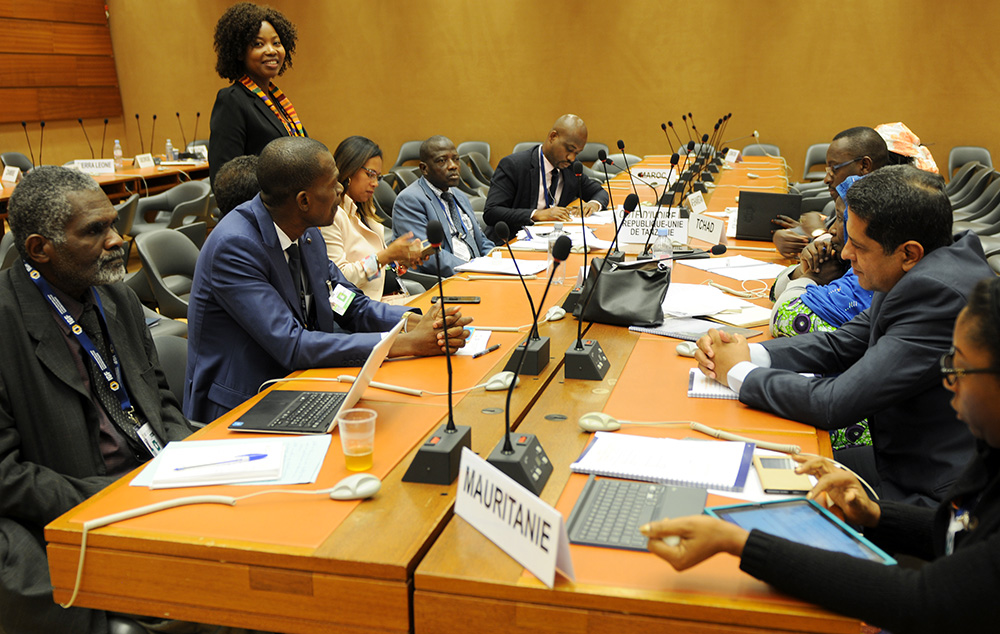
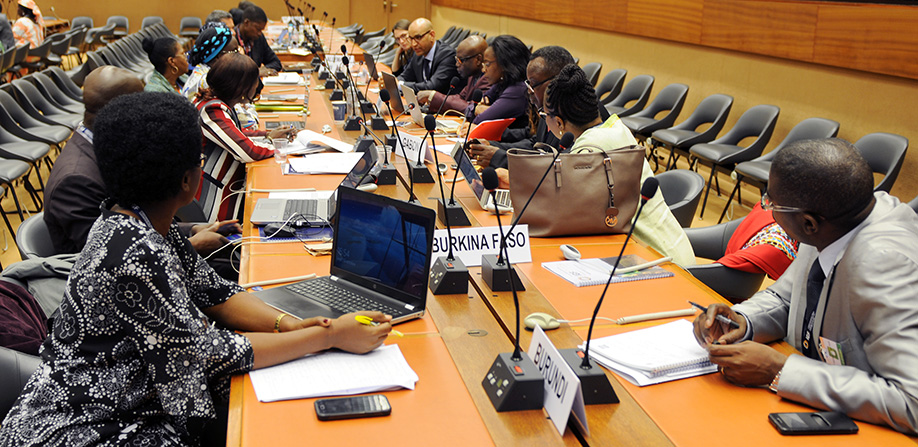
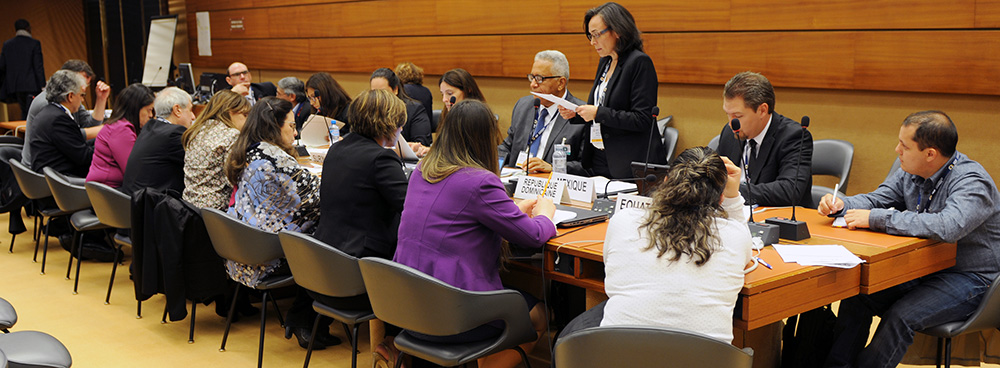
DOWNLOAD ENB+ REPORT
2018 AGM Resources
IISD/ENB+ Meeting Coverage
- 2017 AGM, 16-20 October 2017, Palais des Nations, Geneva, Switzerland
- 2016 AGM, 24-28 October 2016, Palais des Nations, Geneva, Switzerland
IISD Resources
- SDG - A Mailing List for News on Sustainable Development Policy
- SDG Knowledge Hub — Oceans and Coasts
- SDG Update Newsletter - A compilation of news, commentary and upcoming events published on the SDG Knowledge Hub
- SDG Knowledge Hub - An Online Resource Center for News and Commentary Regarding the Implementation of the United Nations’ 2030 Agenda for Sustainable Development, including all 17 Sustainable Development Goals (SDGs)
- Linkages Update - International Environment and Sustainable Development News
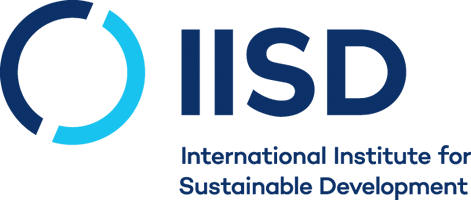 Specific funding for coverage of the 2018 AGM has been provided by IISD
Specific funding for coverage of the 2018 AGM has been provided by IISD